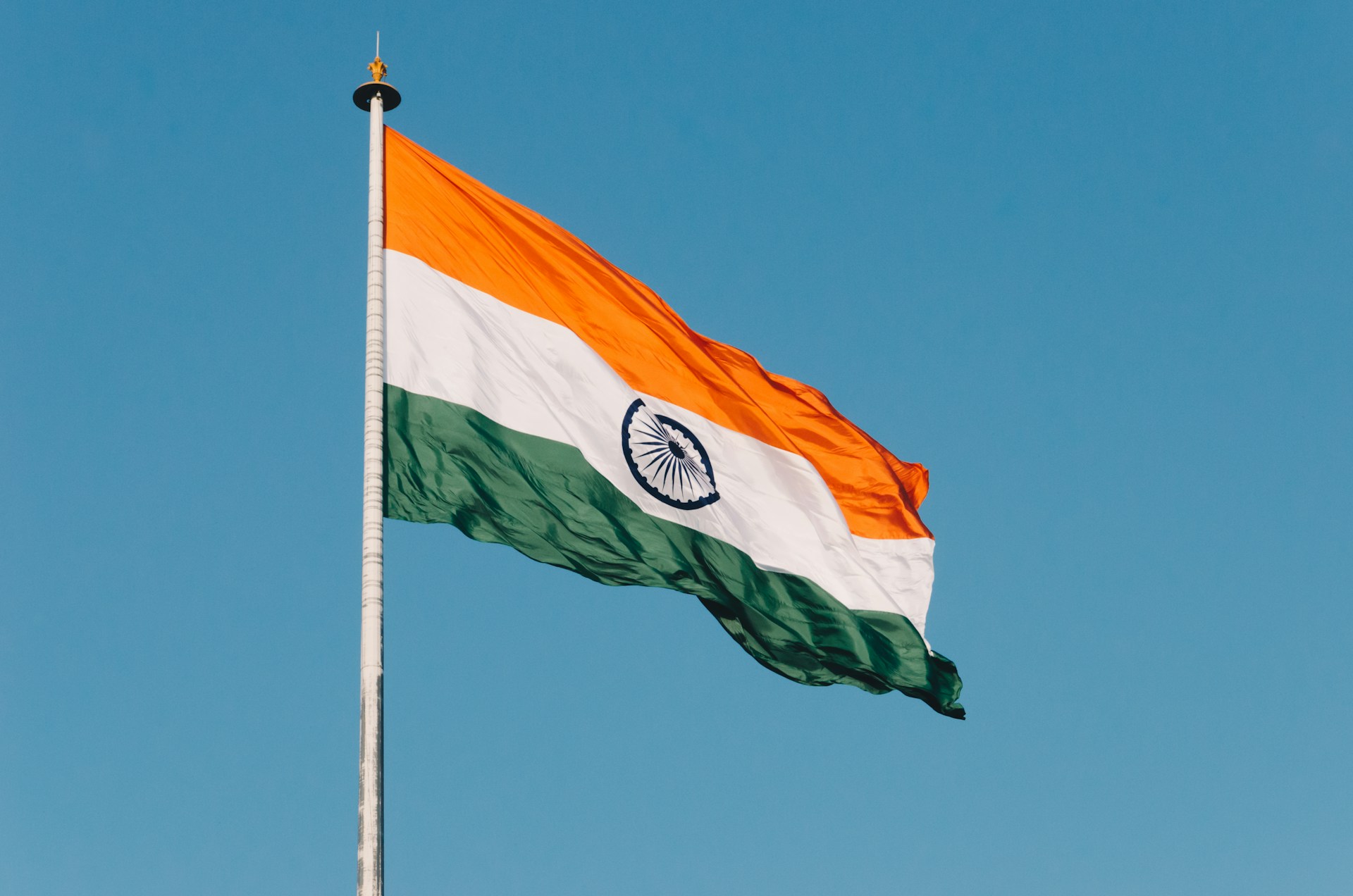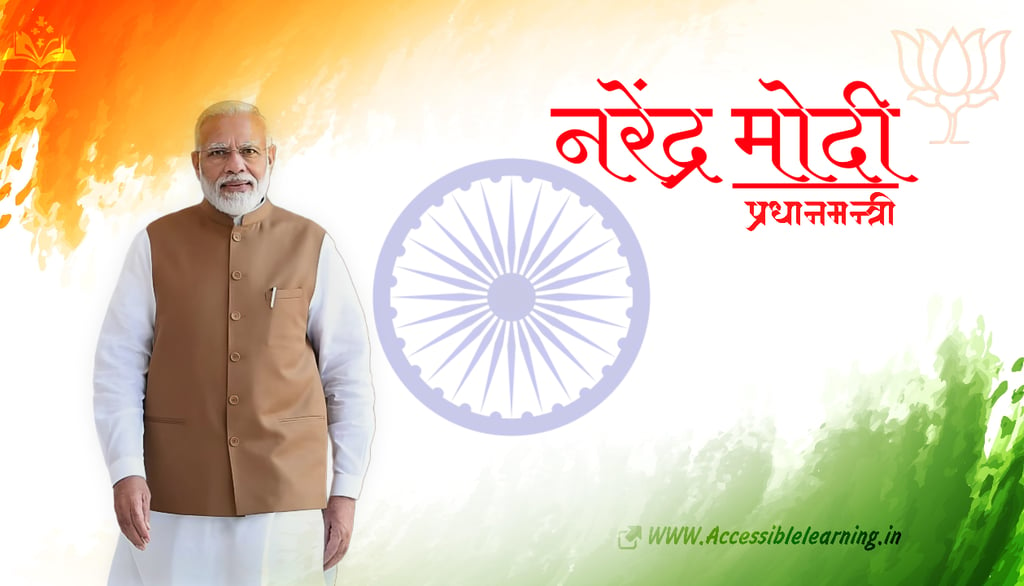
The Rise of Narendra Modi: India’s Leader on the Global Stage!
India's Prime Minister Narendra Modi has transformed the country's political and economic landscape with his bold reforms and his vision for global leadership. Learn about his journey, achievements, and challenges.
THE GREAT LEADERRSSBJPBIOGRAPHYMODERN INDIA
Keshav Jha / Sachin K Chaurasiya
9/12/20246 min read


Born on September 17, 1950, in Vadnagar, Gujarat, Narendra Modi Ji (नरेंद्र मोदी जी) is the Prime Minister of India and a major figure in modern Indian politics. Since taking office in 2014, Modi Ji has led India with a focus on economic reforms, infrastructure development, and a vision to transform the country into a global power. His policies, leadership style, and strong nationalist agenda have made him a polarizing but popular figure both in India and on the world stage.
Early Life & Political Roots!
Narendra Modi Ji (नरेंद्र मोदी जी) was born into a simple family in Vadnagar, Gujarat. His early life was full of hardships, as his family ran a small tea stall, where Modi Ji helped out as a young boy. His simple beginnings shaped his personality as a self-made leader that resonated with millions of Indians. Modi Ji joined the Hindu nationalist organization Rashtriya Swayamsevak Sangh (RSS) at a young age, from where he began his journey in politics.
Modi Ji's rise through the ranks of the Bharatiya Janata Party (BJP) was rapid. After joining the party in 1985, he played a key role in shaping its electoral strategies and expanding its influence. He first came to national attention when he was appointed the chief minister of Gujarat in 2001 after a devastating earthquake struck the state. His way of handling relief and reconstruction efforts earned him recognition for his administrative skills.
The Gujarat Model & Controversy!
Modi Ji's tenure as Gujarat's chief minister from 2001 to 2014 is often credited with transforming the state into one of India's most prosperous regions. His emphasis on economic growth, infrastructure, and industrial development, known as the Gujarat model, attracted investment and created jobs. Under his leadership, Gujarat's economy grew rapidly, with a focus on improving roads and power supply and attracting foreign and domestic investment.
However, his tenure as chief minister was not without controversies. The 2002 Gujarat riots, which took place during his first year in office, remain a dark chapter in his political career. The violence, which resulted in the deaths of over a thousand people, mostly Muslims, led to widespread criticism of Modi's handling of the situation. Despite various investigations clearing him of direct involvement, the episode continued to follow him, and he was accused of not doing enough to prevent the violence.
Rise to National Power!
Modi Ji's rise in national politics began when the BJP chose him as its candidate for prime minister in the 2014 general election. Modi Ji's message, based on issues of economic reform, development, and anti-corruption, appealed to a large segment of the Indian population. His campaign, marked by innovative use of technology and social media, energized voters and led the BJP to a decisive victory, the first time in 30 years that a single party had won an absolute majority in India.
Key Policies & Initiatives!
Since becoming prime minister in 2014, Narendra Modi Ji has launched several major initiatives aimed at modernizing India's economy, improving infrastructure, and raising its global standing. Some of his most notable initiatives include
Make in India!
The Make in India campaign, launched in 2014, was aimed at encouraging domestic and international companies to make products in India, thereby boosting the country's manufacturing sector. The initiative was aimed at creating jobs, attracting investments, and establishing India as a global manufacturing hub.
Digital India
Modi Ji's Digital India program, launched in 2015, aimed to improve access to digital services, boost internet connectivity, and promote e-governance. The initiative has expanded digital literacy and made online access to government services easier, transforming India into a more tech-savvy nation.
Swachh Bharat Abhiyan (Clean India Mission)
In 2014, Modi launched the Swachh Bharat Abhiyan (स्वच्छ भारत अभियान), an ambitious nationwide sanitation campaign. Its primary goals were to improve sanitation, eliminate open defecation, and promote hygiene. Modi Ji's leadership on the issue helped raise awareness and saw significant improvements in sanitation infrastructure.
Goods and Services Tax (GST)
One of the most significant economic reforms under Modi Ji was the introduction of the Goods and Services Tax (GST) in 2017. GST unified the country's tax system, replacing multiple state and national taxes with a single tax structure. Although initially faced with challenges, the reform aimed to simplify tax collection and promote ease of doing business.
Demonetization
In November 2016, Modi Ji announced the demonetization of ₹500 and ₹1,000 notes with the stated aim of combating corruption, black money, and counterfeit currency. The sudden decision caused widespread disruption, long queues at banks, and financial stress for many, but it also drew significant attention to the need for a more transparent economy.
Pradhan Mantri Jan Dhan Yojana
Under Modi Ji's leadership, the Pradhan Mantri Jan Dhan Yojana was launched to ensure financial inclusion by opening bank accounts for millions of Indians, many of whom had never had access to banking services before. This initiative has helped bring financial services to the masses and promote savings among low-income individuals.
Aatmanirbhar Bharat (Self-Reliant India)
In the wake of the COVID-19 pandemic, Modi Ji launched the Atmanirbhar Bharat initiative, which aims to make India more self-reliant in key sectors such as manufacturing, technology, and pharmaceuticals. The initiative includes a package of economic reforms and incentives aimed at boosting local industries and reducing dependence on imports.

Foreign Policy & Global Leadership!
Narendra Modi Ji has made his mark on the global stage through his proactive foreign policy, which aims to establish India as a global leader. His diplomacy is characterized by strengthening ties with key allies, promoting India as a global economic player, and advancing strategic partnerships. Some of the highlights of Modi Ji's foreign policy are as follows:
Closer ties with the United States: Modi Ji has worked to deepen the strategic partnership between India and the United States, especially in areas such as defense cooperation, technology, and trade. His strong relationships with Presidents Obama, Trump, and Biden have helped boost bilateral ties.
Neighborhood First: Modi Ji's Neighborhood First policy prioritizes improving ties with India's neighboring countries, including Nepal, Bangladesh, Bhutan, and Sri Lanka. However, relations with Pakistan remain strained due to long-standing territorial disputes and security concerns.
Engagement with the Global South: Modi Ji has strengthened India's position as a leader of the Global South, advocating for developing countries at international forums such as the United Nations and the G20.
Act East Policy: Modi Ji's Act East Policy focuses on enhancing India's ties with Southeast Asian countries and building strong economic and strategic ties in the Asia-Pacific region.


Challenges & Criticism!
Despite his successes, Narendra Modi's (नरेन्द्र मोदी जी) tenure has not been without controversy and criticism. His government has been accused of undermining democratic institutions and freedom of expression. Critics point to growing censorship, arrests of dissenters, and the growing influence of Hindutva ideology in shaping India's cultural and political landscape.
His handling of the COVID-19 pandemic in 2020 and 2021 was heavily criticized, including allegations of poor planning, the inadequacy of the healthcare system, and failure to manage the surge in cases. However, the Modi government emphasized its efforts in the vaccination campaign and economic recovery.
Personal Life & Charisma
Modi Ji's personal life is marked by his simplicity, discipline, and charisma. Known for his oratory skills and connection to the common man, Modi Ji has built a strong personal brand, often using social media to connect directly with the public. He has cultivated an image of a hardworking, self-reliant leader, and his speeches often instill a sense of national pride and optimism. Modi Ji, who decided to remain unmarried after separating from his wife early in life, often describes his dedication to public service as his primary calling. He practices yoga and advocates a healthy lifestyle, often referring to his humble origins as a source of inspiration.
Narendra Modi Ji's (नरेन्द्र मोदी जी) leadership has transformed India's political and economic landscape. From his early life as a teaseller to becoming one of the most powerful leaders in Indian history, Modi's journey is a testament to his determination and political acumen. His vision for a stronger, more self-reliant India resonates with millions, but his tenure has also sparked debate about the direction of democracy, secularism and governance in the country.
As India emerges as a global power, Modi Ji's legacy will be defined by his ability to balance development with inclusiveness, growth with democratic values, and nationalism with pluralism.
Subscribe To Our Newsletter
All © Copyright reserved by Accessible-Learning Hub
| Terms & Conditions
Knowledge is power. Learn with Us. 📚


